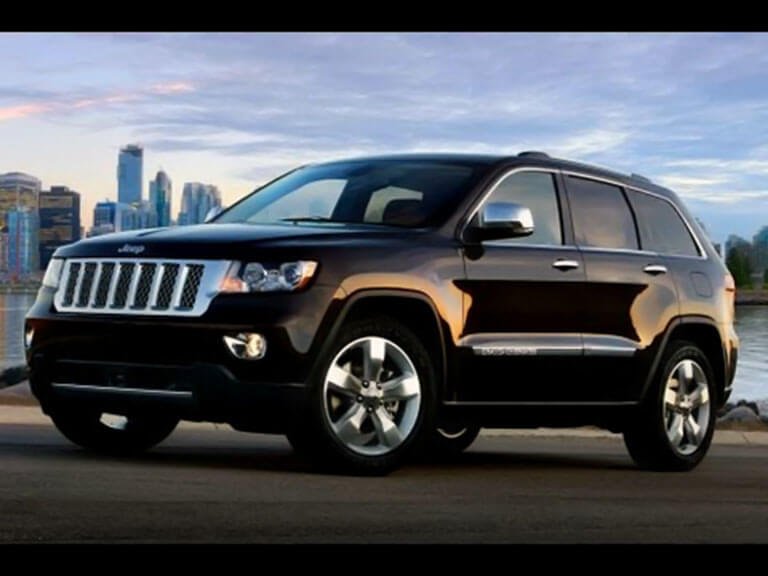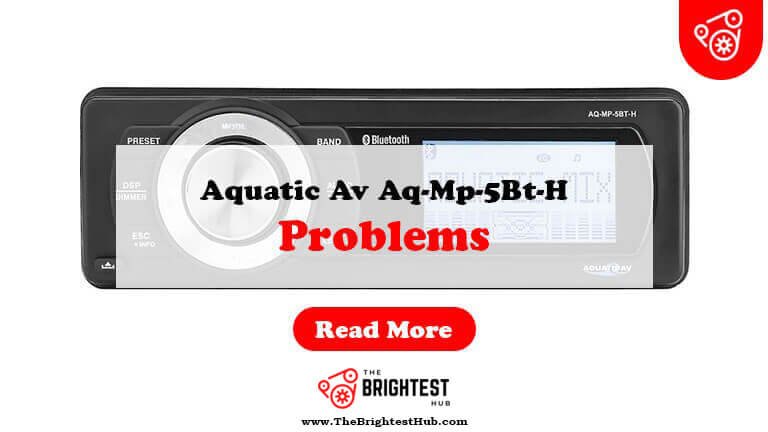Jeep Cherokee Starting Problems: Quick Fixes & Tips
Jeep Cherokee starting problems often stem from issues with the battery, starter, or ignition system. Diagnosing these components can help pinpoint the exact cause.
Starting issues with the Jeep Cherokee can be frustrating for any driver. A reliable vehicle is essential for daily commuting and adventures. Problems can arise unexpectedly, leaving you stranded or delaying your plans. Understanding common starting issues can save time and prevent costly repairs.
This guide will explore typical reasons your Cherokee may not start and provide practical solutions. Whether it’s a weak battery or a faulty ignition switch, addressing these problems early can restore your confidence in your vehicle. Stay informed to keep your Jeep Cherokee running smoothly and efficiently.
Common Starting Issues With Jeep Cherokee

The Jeep Cherokee is a reliable vehicle. Yet, it can face starting problems. Understanding these issues can help in quick fixes. Below are common starting issues you might encounter.
Battery Complications
Battery problems are a frequent cause of starting issues. Here are some common battery complications:
- Dead Battery: A dead battery means no power.
- Corroded Terminals: Corrosion can prevent a good connection.
- Old Battery: Batteries age and lose efficiency over time.
Check the battery regularly. Replace it if it’s old or damaged.
Ignition Switch Failures
Issues with the ignition switch can also cause starting problems. Look for these signs:
- Unresponsive Key: The key may not turn in the ignition.
- Lights Flickering: Dashboard lights may flicker when starting.
- Engine Cranks but Won’t Start: The engine may try to start but fail.
Inspect the ignition switch. A faulty switch may need replacement.
Quick Diagnostic Steps
Experiencing starting problems with your Jeep Cherokee can be frustrating. Follow these quick diagnostic steps to identify the issue. Start with the basics before seeking professional help.
Checking The Battery
The battery is often the main culprit for starting problems. Here’s how to check it:
- Visual Inspection: Look for any corrosion on terminals.
- Battery Voltage: Use a multimeter to check voltage.
- Jump Start: Try jump-starting the battery.
If the Jeep starts after a jump, the battery may need replacing.
Inspecting The Starter Motor
The starter motor is essential for starting your Jeep. Follow these steps:
- Listen for Clicking Sounds: A single click indicates a problem.
- Check Connections: Ensure all wires are secure.
- Test with a Multimeter: Measure voltage at the starter.
If the starter motor fails to engage, replacement might be necessary.
Electrical System Troubleshooting
Jeep Cherokee starting problems often stem from the electrical system. Understanding how to troubleshoot can save time and money. Focus on key components like the alternator and wiring connections.
Alternator Health Check
The alternator is vital for charging the battery. A failing alternator can cause starting issues. Follow these steps to check the alternator:
- Start the engine. Listen for any unusual sounds.
- Check the voltage output. Use a multimeter for accurate readings.
- Inspect the alternator belt for wear and tightness.
- Look for warning lights on the dashboard.
Here’s a quick reference table for alternator voltage readings:
| Engine Speed (RPM) | Voltage Output (Volts) |
|---|---|
| Idle | 13.5 – 14.5 |
| 2000 | 13.8 – 14.7 |
| 3000 | 14.0 – 14.8 |
Any reading below 13.5 volts indicates a problem. Inspect or replace the alternator as needed.
Electrical Connections And Wiring
Loose or corroded connections can disrupt power flow. Inspect wiring and connectors closely. Here’s how to ensure a good connection:
- Check battery terminals for corrosion.
- Make sure all connections are tight and secure.
- Inspect wires for fraying or damage.
- Look for any exposed metal that could cause shorts.
Use a wire brush to clean terminals. Apply dielectric grease to prevent future corrosion. Regular maintenance helps avoid starting problems.
Fuel System Checks
Fuel system checks are crucial for your Jeep Cherokee. Problems in this system can lead to starting issues. Understanding how to assess the fuel system can save you time and money.
Fuel Pump Functionality
The fuel pump plays a vital role in delivering fuel. It pushes fuel from the tank to the engine. Check the following to ensure proper fuel pump functionality:
- Listen for a humming noise when you turn the key.
- Check for fuel leaks around the pump area.
- Inspect electrical connections for corrosion or damage.
If the fuel pump isn’t working, consider these signs:
| Sign | Description |
|---|---|
| No sound | No humming noise indicates a faulty pump. |
| Stalling | Engine stalls while driving due to fuel starvation. |
| Difficulty starting | Engine cranks but fails to start. |
Fuel Filter Blockages
The fuel filter keeps dirt and debris from entering the engine. A clogged fuel filter can block fuel flow. Regular checks can prevent this issue.
Signs of a blocked fuel filter include:
- Reduced engine power.
- Engine misfires or hesitates.
- Difficulty starting the engine.
To check the fuel filter:
- Locate the fuel filter in your Jeep Cherokee.
- Inspect for dirt or debris on the filter.
- Replace the filter if it appears clogged.
Replacing the fuel filter regularly can enhance performance. It ensures that fuel reaches the engine efficiently.
Ignition System Quick Fixes
Starting problems with your Jeep Cherokee can stem from the ignition system. Quick fixes can save time and money. Here are two essential areas to check: spark plugs and ignition coils.
Spark Plug Inspection
Checking your spark plugs is a simple first step. Spark plugs ignite the air-fuel mixture in the engine. Worn or damaged plugs can cause starting issues. Follow these steps for a proper inspection:
- Locate the spark plugs.
- Inspect for wear or damage.
- Check for carbon buildup.
- Replace if necessary.
Here’s a quick reference table for spark plug conditions:
| Condition | Action |
|---|---|
| Worn Electrode | Replace Spark Plug |
| Carbon Buildup | Clean or Replace |
| Cracked Insulator | Replace Spark Plug |
Ignition Coil Assessment
The ignition coil is vital for starting your Jeep. It transforms the battery’s low voltage into a high voltage. A faulty coil can lead to starting problems. Here’s how to assess it:
- Check for visible damage.
- Look for corrosion on connections.
- Test the coil with a multimeter.
Use this checklist to evaluate ignition coils:
| Test | Result | Action |
|---|---|---|
| Resistance Test | Outside Spec | Replace Ignition Coil |
| Connection Check | Corroded | Clean Connections |
| Visual Inspection | Cracks/Damage | Replace Ignition Coil |
Engine Concerns
Engine problems can cause starting issues in your Jeep Cherokee. Understanding these concerns helps you identify potential problems quickly. Below are key issues related to engine performance that can affect starting.
Compression Issues
Compression problems can prevent your engine from starting. Low compression often leads to a weak spark. Here are common reasons for low compression:
- Worn piston rings
- Damaged valves
- Head gasket failure
Check compression levels using a compression tester. Normal compression ranges from 120 to 180 psi. If readings are lower, repairs may be necessary.
Timing Belt And Chains
The timing belt or chain controls engine timing. If it’s worn or broken, the engine won’t start. Signs of timing issues include:
- Engine misfires
- Unusual noises
- Engine warning lights
Replace the timing belt every 60,000 to 100,000 miles. Regular maintenance prevents serious engine damage. Always consult your owner’s manual for specific guidelines.
Key Fob And Security System
Jeep Cherokee starting problems often relate to the key fob and the security system. These components play a crucial role in your vehicle’s ability to start. A faulty key fob or an engaged security system can prevent your engine from cranking. Understanding how to troubleshoot these issues can save time and frustration.
Key Fob Battery Replacement
The key fob battery can wear out over time. A dead battery leads to starting issues. Follow these simple steps for replacement:
- Locate the small notch on the fob.
- Use a coin or flathead screwdriver to pry it open.
- Remove the old battery carefully.
- Insert the new battery, ensuring the positive side is up.
- Snap the fob back together.
Common battery types for Jeep key fobs include:
| Battery Type | Typical Lifespan |
|---|---|
| CR2032 | 2-3 years |
| CR2016 | 2-3 years |
Replace the battery every few years to avoid issues.
Security System Reset
A security system malfunction can prevent your Jeep from starting. Resetting the system may resolve the problem. Follow these steps:
- Close all doors securely.
- Insert the key into the ignition.
- Turn the key to the ON position for 10 seconds.
- Turn the key back to OFF.
- Remove the key and wait for 1 minute.
If the issue persists, check the following:
- Battery connections for corrosion.
- Fuses related to the security system.
- Any visible damage to wiring.
Consult a professional if problems continue.
Professional Assistance And Dealer Support
Starting problems with your Jeep Cherokee can be frustrating. Seeking help from professionals can save time and stress. Understanding when to consult a mechanic is crucial. Utilize dealer services for better support and solutions.
When To Seek A Mechanic
Knowing when to call a mechanic is essential. Look for these signs:
- No response when turning the key.
- Clicking sound without engine start.
- Dashboard lights flickering or not turning on.
- Unusual smells or smoke.
- Battery issues or corrosion present.
Don’t ignore these signs. Early diagnosis can prevent bigger issues.
Utilizing Warranty And Dealer Services
Your Jeep Cherokee may still be under warranty. This can cover many repairs. Always check your warranty details.
Use dealer services for:
- Expert mechanics trained specifically for Jeep vehicles.
- Access to genuine parts that ensure quality.
- Software updates that might resolve starting issues.
- Detailed diagnostics for accurate problem identification.
Contact your dealer for assistance. They can provide the right support.
Preventative Measures And Maintenance Tips
Taking care of your Jeep Cherokee is crucial. Regular maintenance can prevent starting problems. Here are key tips to keep your vehicle in top shape.
Regular Vehicle Check-ups
Regular check-ups can save you from future headaches. Schedule visits to your mechanic every six months. Focus on these areas:
- Battery Health: Inspect terminals for corrosion.
- Starter Condition: Ensure the starter works smoothly.
- Electrical System: Check wiring and connections.
- Fuel System: Clean fuel injectors regularly.
Consider keeping a maintenance log. Note all services performed and parts replaced. This helps track vehicle health over time.
Seasonal Maintenance Advice
Different seasons bring unique challenges. Adjust your maintenance routine accordingly:
| Season | Maintenance Tasks |
|---|---|
| Winter |
|
| Summer |
|
Stay proactive. Seasonal checks can prevent unexpected starting issues.
Frequently Asked Questions
What Causes Jeep Cherokee Starting Problems?
Starting issues can stem from a dead battery, faulty starter, or ignition switch problems.
How To Diagnose Jeep Cherokee Starting Issues?
Check the battery voltage, inspect connections, and test the starter and ignition system for faults.
Can Low Fuel Cause Starting Problems?
Yes, low fuel can prevent the engine from starting due to inadequate fuel supply to the system.
What Are Common Symptoms Of Starting Issues?
Common symptoms include clicking sounds, dashboard lights flickering, or the engine not turning over at all.
How To Fix A Jeep Cherokee That Won’t Start?
Replace the battery, check the starter, or fix wiring issues to resolve starting problems effectively.
Conclusion
Experiencing starting problems with your Jeep Cherokee can be frustrating. Identifying the root cause is crucial for a quick fix. Regular maintenance can prevent many issues. Stay informed about common problems and solutions. By addressing these concerns promptly, you can enjoy a smooth driving experience and keep your Jeep in top condition.






